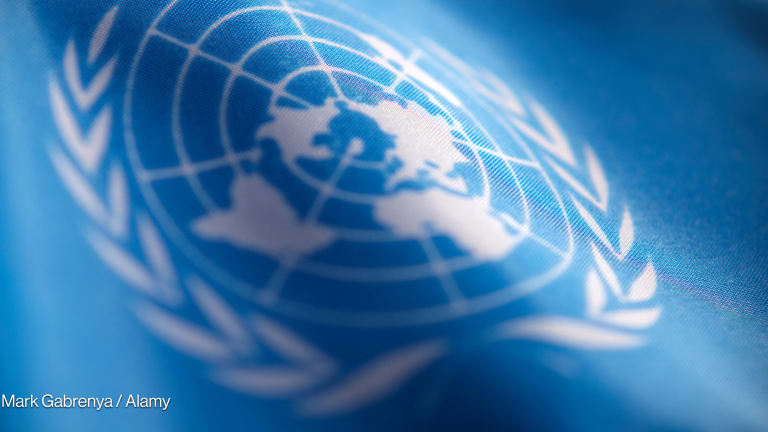Syria's humanitarian crisis not likely to end in 2019, UN expert says

UNITED NATIONS — The humanitarian crisis in Syria is not going to “phase out” in 2019, and will likely continue on into the next several years, Ali Al-Za’tari, United Nations resident and humanitarian coordinator in Syria, said on Thursday afternoon at U.N. headquarters.
As the country nears its eighth year of civil war, there are still approximately 12-13 million Syrians in need of humanitarian assistance, Al-Za’tari told journalists during a press briefing. Six million of these people are internally displaced, concentrated mostly near Aleppo and Damascus.
“We need to reach people fast and efficiently. If we can do that, we should do it. Millions are potentially insecure,” he said.
Donors fall short at Syria conference
International donors pledged $4.4 billion in aid for civilians in Syria and its surroundings in 2018 at a conference in Brussels earlier this year, far short of what the U.N. says is needed to provide humanitarian assistance in the region this year.
The U.N. Office for the Coordination of Humanitarian Affairs is seeking $3.36 billion to cover its humanitarian response within Syria through 2018. So far, it has received $1.53 billion, leaving an unmet total of $1.83 billion. More funding could still materialize within the next three months, according to Al-Za’tari, who explained that additional funding could also be dependent on a “factual assessment of data” of the specific needs.
In May, the U.N. warned that a funding gap of around 80 percent for Syrian refugees could lead to cuts in critical services. Agencies are seeking $5.6 billion to support the approximate 5.6 million Syrian refugees living in Jordan, Lebanon, Turkey, Iraq, and Egypt.
“We always ask for additional funding, as the crisis is huge,” Al-Za’tari said of funding for Syria. “If we manage to obtain that defensible data, we will be able to convince the donors that 2019 will focus on those who are most in need.”
Fourteen U.N. agencies are operating across almost all governorates of Syria and all sectors — ranging from food and education to health and camp management for internally displaced people — remain equally important, he said.
Al-Za’tari fielded multiple questions surrounding Syria’s reconstruction, but explained that reconstruction is not within the U.N.’s mandate and responsibility will ultimately fall to the Syrian government. The civil war there is considered to be winding down by some experts, as President Bashar al-Assad has regained most of the country’s territory.
“I have no idea whether it [will] take 30 or 50 years [to reconstruct Syria]. That is something that is governed by government capacities and is difficult to answer,” Al-Za’tari said.
“The U.N. is not in reconstruction and will not be. We are not specialists when it comes to reconstruction. Our main concern is humanitarian assistance to people in need,” he continued.
Meanwhile, the U.N. is neither discouraging nor encouraging refugees to return to Syria. Humanitarian actors have reportedly been increasing their presence in major areas of return, like Ar-Raqqa city, but explosive hazard contamination has impacted this work.
“We are not telling refugees to come into Syria, and not telling them not to come into Syria. We will provide assistance based on their needs, as assessed by us,” Al-Za’tari said.
Search for articles
Most Read
- 1
- 2
- 3
- 4
- 5








